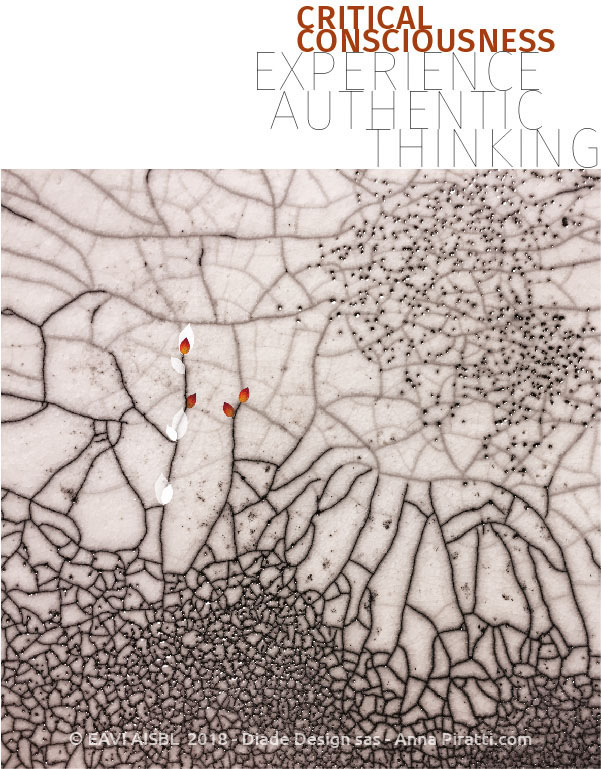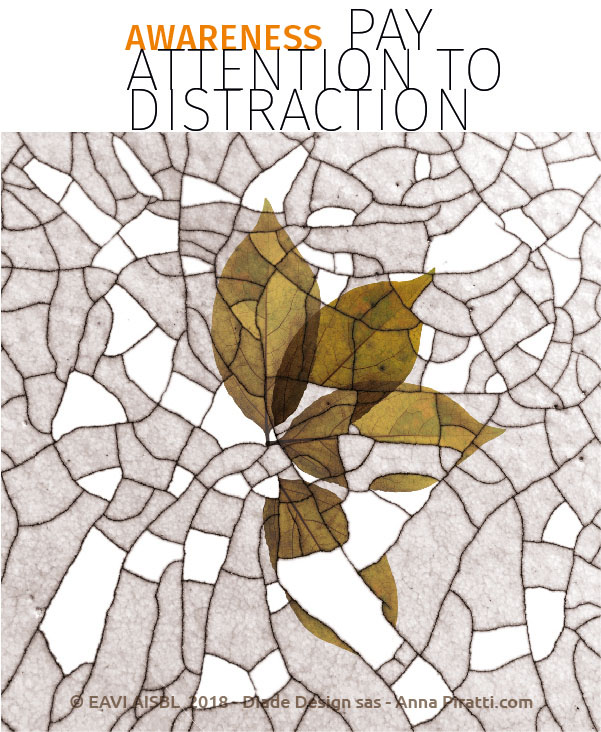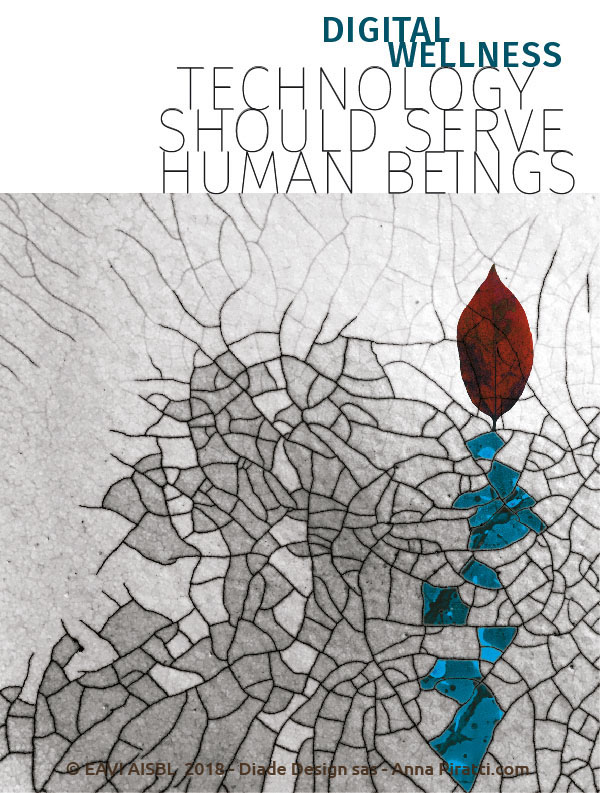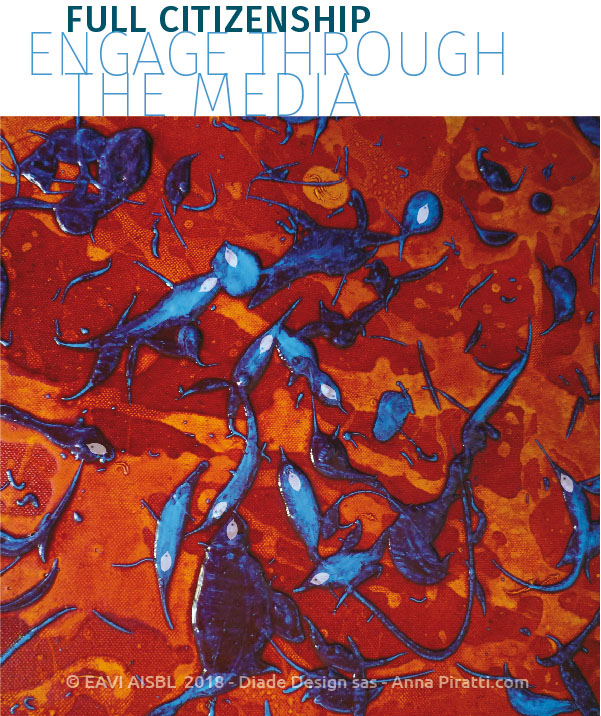The Art of Living in the Digital Environment
An EAVI concept about the process of becoming media literate
The media landscape will continue to evolve rapidly and influence communication between individuals and within society. Future technological developments, including that of artificial intelligence, will have a profound effect on people’s behaviour and will challenge the current understanding of media literacy. This is why media literacy should not be framed within a rigid definition. In order to retain its effectiveness, it should allow for a flexible interpretation, based on shared concepts, to adapt to the complexity of the evolving media environment
EAVI feels that these concepts should ultimately be brought back to a human-based perspective. Today, is there any area of human life that is not influenced by the media and digital technologies? Co-existing in this digital space, our emotions, thoughts and behaviours are shaped. Observing recent socio, cultural and political developments, it is clear that there are dangers of individuals becoming distracted consumers and manipulated citizens by their use of digital technologies.
All these dimensions are significant and will only become more so; therefore media literacy must be multi-dimensional and continuously evolve in parallel to the fast-changing environment.
EAVI, with 20 years experience and extensive knowledge on media literacy, has contributed decisively to its current understanding and we are now proposing an enhanced, more comprehensive perspective to reflect upon on how to relate to the media. It follows a vision of media literacy which is not just a set of skills to acquire. Cultivating deeper personal attitudes and approaches seem equally essential. The process of becoming media literate must start within ourselves.
Here is a brief outline of these new concepts and processes which aim to contribute to reflections about how to take care of the digital environment we are living in and the skills and attitudes people can develop to benefit more from technology and engage in society. It is structured in four different components that complement each other:

Critical Consciousness
It has finally been accepted that critical thinking and not just technical digital skills, is the core of media literacy. Media literacy, as we have exposed it, has critical thinking as its central property. It remains the pivotal concept, a cognitive, logical process to make sense and use information. However, along with its essential development, it does not seem to be sufficient to address a multifaced media environment.
We are seeing that even if people apply critical skills, many of them remain unable to evaluate news, media sources and contexts, understand propaganda, spot advertising or react appropriately to harmful content.
In fact, to fully understand a media message, it is not sufficient to be able to read a piece of information critically, nor is it to build a rational capacity to analyse a media message.
In order to truly understand media content and the context from which it originated, rational thinking needs to rest on solid values such as integrity, ethics, empathy and fairness. In other words, cultivating personal attitudes would result in the capacity of developing clear thoughts and more appropriate behaviours.
In essence, what we call here critical consciousness, is composed of critical thinking skills and, as a preliminary condition, of sound personal attitudes and values. In turn, a healthier media experience will feed and further enrich individual competences and enable people to gain real knowledge. The risk is otherwise to acquire, if anything, only shallow notions and empty information. Thus, to have access to everything without having learned anything at all.
The use of the term consciousness is therefore meant to provide a much deeper dimension.

Awareness of Experience
Furthermore, media literacy is not only about rational, logical thinking. It is becoming clear that developing awareness of our digital experience, of thoughts and emotions that are activated when encountering media content, is equally important. Rather than reacting impulsively to thoughts and emotions, we may find a wiser response. Noticing how we feel after an online interaction will lead to more skillful use of technology.
The necessary first step to solve any problem is to be aware of it. As an example, using the media, we must be aware that we are subject to propaganda, a state of being emotionally manipulated or be aware about the fact that we are spending a certain number of hours online and be able to realise what we actually did during that time. Being aware that the content, including prices and search results we come across online, is instantly personalised for us by algorithms.
To exploit people’s vulnerabilities, media platforms base their strategies also on behavioural sciences. Do we realise that online we are often distracted for a purpose, for someone else’s commercial or political interest? Likewise, we should be aware that it is only an illusion to think that we are the ones who are truly choosing the next movie to watch.
The recent covid crisis has had an important impact on people’s media routines with work, education, exercise and socialising moving more and more online. In order to live better with such an amplified exposure to the media, an increased awareness of what we are doing and the impact of how we are conducting ourselves online will serve us well.
In other words, to become media literate and cultivate healthier reflexes, it is also necessary to develop the capacity of recognising feelings and thoughts, to see how they are triggered and to understand how these influence our choices.
Developing awareness is an essential component in being media literate and learning to pay attention is the process towards this.

Digital Well-Being
Once people have evaluated the benefit and consequences of their media use, we need to be truly capable of using those technologies safely and confidently to our own benefit.
The prevalence and rise of mental health issues related to online activity is an alarm bell. Addiction, depression, anxiety, poor concentration, and low self-esteem are some of the conditions that can worsen by our experience in the digital environment. The necessity to protect our health and well-being will involve adapting certain behavioural attitudes when interacting with the media.
Our online activity is often a result of being prompted by our devices through notifications, suggestions, and incoming messages. We are being pushed and pulled around. We become influenced to do things that may be against our best interest and are not good for us.
It is our digital tools that sometimes seem to be in command and that can take over our online behaviour. The digital media system constantly digs and extracts from us our personal data. It tracks our habits and wishes, localises our position and induces certain behaviours. The scope is to profile and sell us in exchange of money.
This third component extends much further the need of acquiring adequate technical abilities which, in the digital media environment, is obviously essential. Using the media as a real personal resource, relies on people being truly capable of mastering the respective products, services and technologies. With the advent of mobile equipment, the internet of things, machine learning and artificial intelligence, which promise to bring many new gadgets into our lives (in our cars, homes and clothes), we will need to possess the ability to be in control as much as possible of these technologies and therefore be able to decide what to do with them, when and how.
To benefit from the media and care about our well-being, practical skills such as simply being able to switch on and off the respective devices, adjusting the privacy settings of social media, choosing which cookies to accept and refusing consent to third parties to use our personal information and data are all important. Coupled with this, we need to be the masters of our digital life.
Technology in this context should serve people’s needs, not the other way around.

Full Global Citizenship
Once we have matured our respective individual skills, as indicated in the previous pages, we can be encouraged to learn how to contribute to a better communication welfare. In this respect, we can become more capable of relating to one another and be actively part of a community. We can see the harm and division caused by disrespectful online behaviour such as hate speech, posting inappropriate images, and shaming others. By refusing to take part and by actively creating an online environment of trust and respect, we support the common good.
In our capacity as citizens, we should be able to participate and engage in the societies we are part of. Nowadays, this participation is essentially through the media, it spans national borders and is therefore global. Citizens may decide for instance, to participate in movements or communities of global concern such as climate change, global peace, or racial and social equalities. This participation, to engage in public life using the media, contributes to democracy and to the development of healthier global societies. The concepts recall those of digital citizenship and digital democracy and are linked to recent widely debated issues such as internet interferences in election campaigns, information warfare and populism spreading through social media.
It is acknowledged that to facilitate meaningful participation, promoting human rights such as freedom and democracy and therefore media pluralism, media freedom or quality journalism play an important role in establishing balanced societies. Therefore, educational bodies, political institutions, the media and civil society organisations each have a role and responsibility to facilitate that process.
In other words, people learning how to use media technology effectively may contribute to global peace and to collective intelligence, this too is part of being media literate.



















































































































































